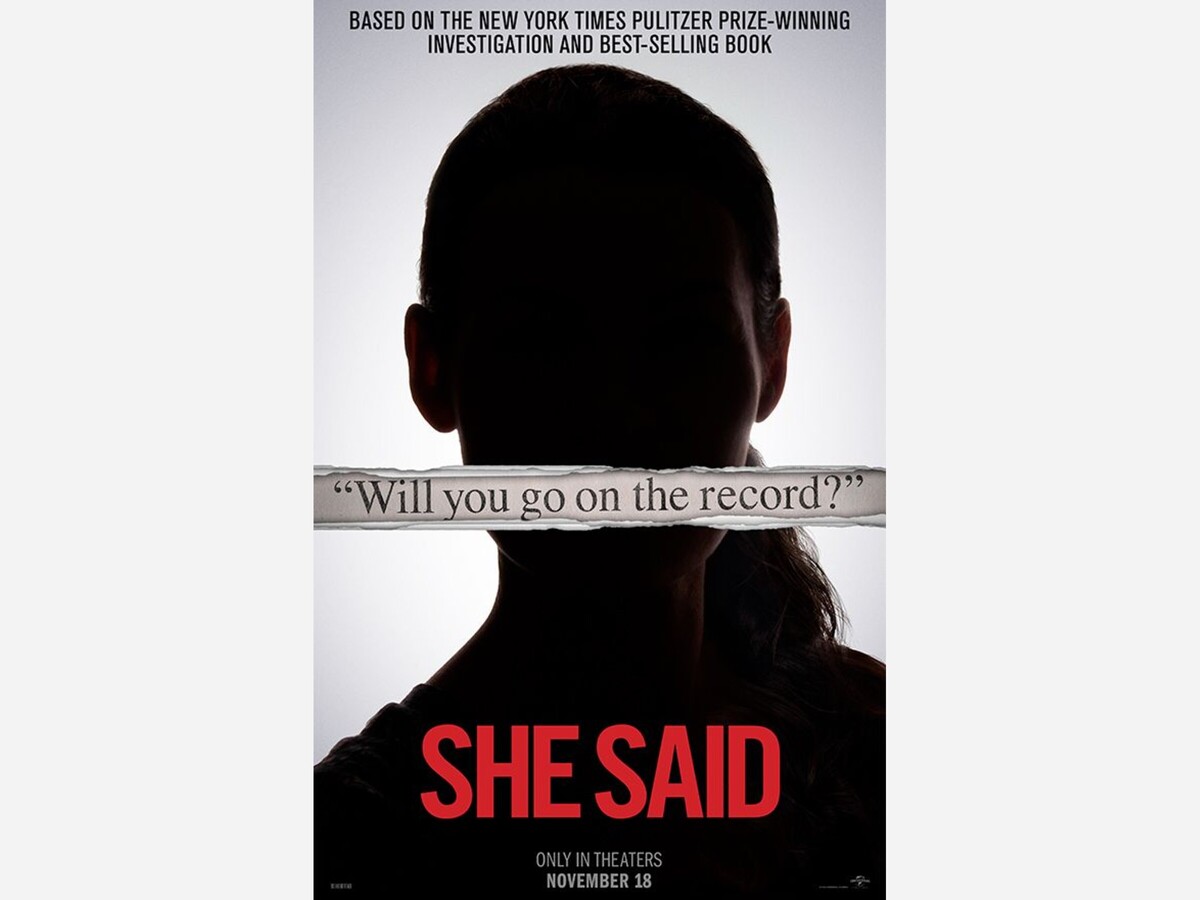Image

In October of 2017, the New York Times reported a story about the decades-long abuse that Harvey Weinstein levied on actresses, aides, and other people who worked in or adjacent to Miramax over the course of nearly three decades. The groundbreaking reporting from journalists Jodi Kantor and Megan Twohey not only led to the criminal investigation and eventual conviction of Weinstein for his behavior, but also acted as a catalyst for the broader #MeToo movement, which started the conversation about workplace sexual harassment. The entire investigation was broken down in 2019’s book She Said which has been dramatized in this movie of the same name to help break down the journalistic process that went into breaking this story.
The movie does an excellent job of highlighting the process behind-the-scenes that led to the downfall of Weinstein, however if someone already is familiar with the story (and who isn’t at this point), there is little new information that is brought to light. While the reporting outside of the New York Times piece tended to focus on the big names associated with the story like Ashley Judd (who does play herself in the movie) and Rose McGowan, the larger story about what happened with staffers and aides within The Weinstein Company and Miramax was less sensational. The movie does a good job of highlighting these aspects, however that’s really the only addition to the main story beyond the explanation as to how they convinced the women to speak on the record.
The acting performances are where the movie really stands out, with Zoe Kazan and Carey Mulligan delivering career-best performances, with Mulligan delivering a strong case for a Best Supporting Actress nomination. Also, partially performance and partially narrative, is the limited role that Harvey Weinstein himself plays in the movie as a type of ominous antagonistic force that is only seen briefly, and even then his face is not visible. It is an interesting approach that reframes what Kantor and Twohey are doing as a more David v. Goliath type story.
The biggest criticism is that the movie lays out the case that this is a broader issue, and in reality it is, however there is a considerable focus on just Weinstein and what he did. That’s not to say it’s not a valid way to frame the movie, however it is worth noting that there is an inherent bias when it comes to telling this story. While the original news was not done with the bias, the movie is produced by Brad Pitt’s production company Plan B, and released by Universal. At times, the movie calls out Disney (rightfully, since Disney owned Miramax for most of the 90s), however it does not acknowledge that this level of systemic abuse did not occur in a vacuum considering it’s not like there was a rush from Universal and other studios to hire the women who got blacklisted by Weinstein.
She Said does an excellent job of dramatizing a lengthy and thorough investigation where the ramifications are still felt today. It will be in theaters November 18th before making its way to Peacock.
Final Rating: 8.5/10